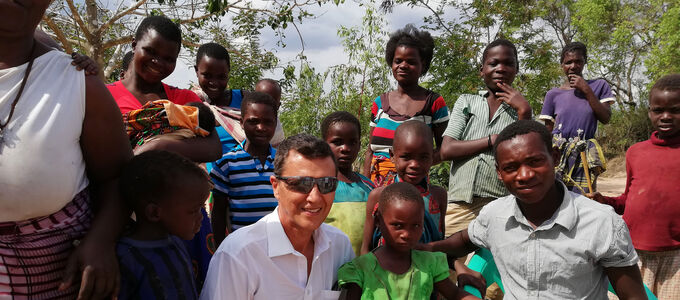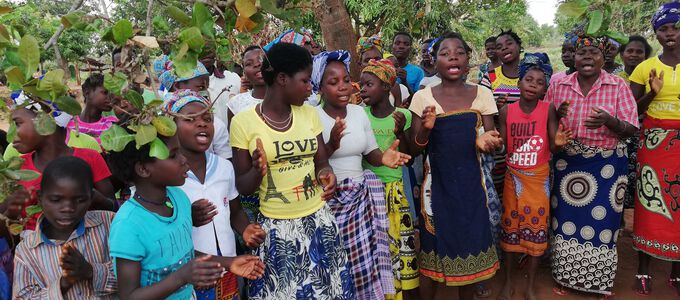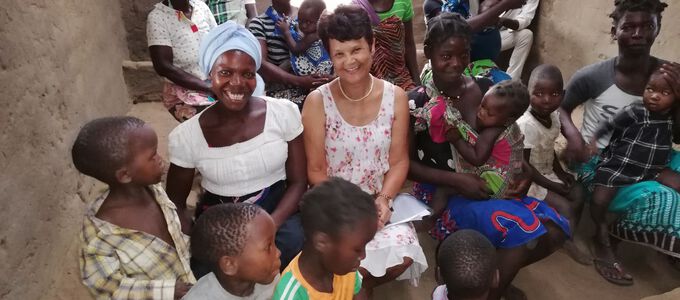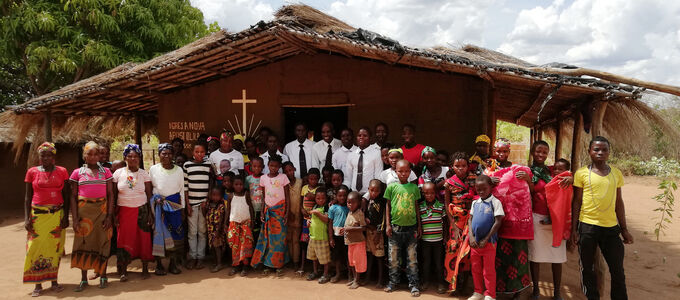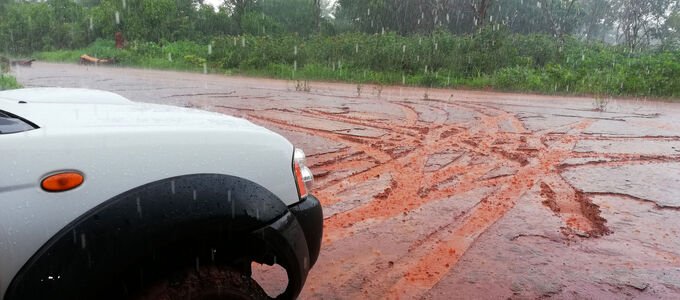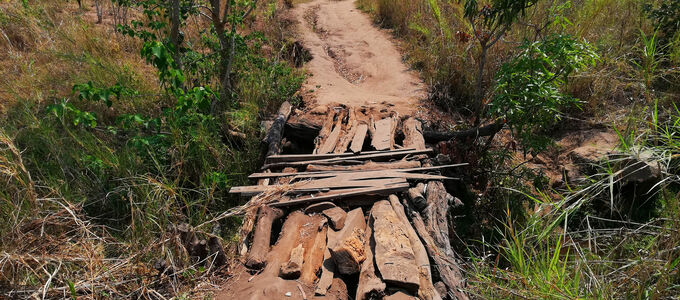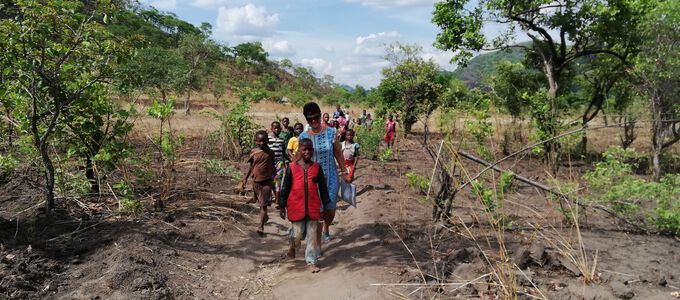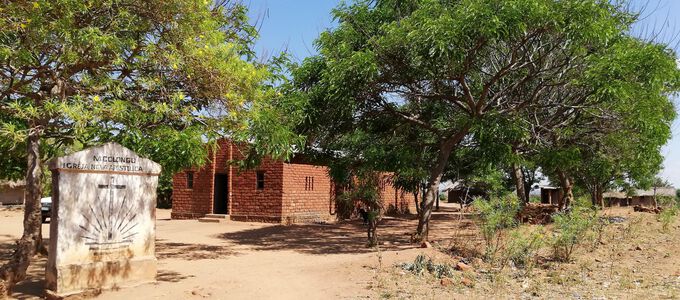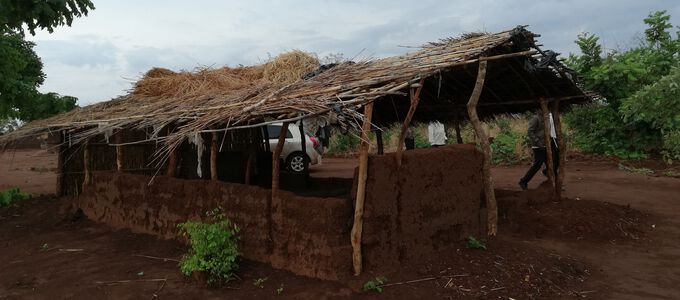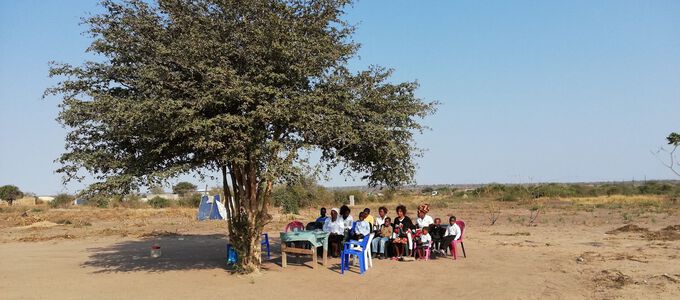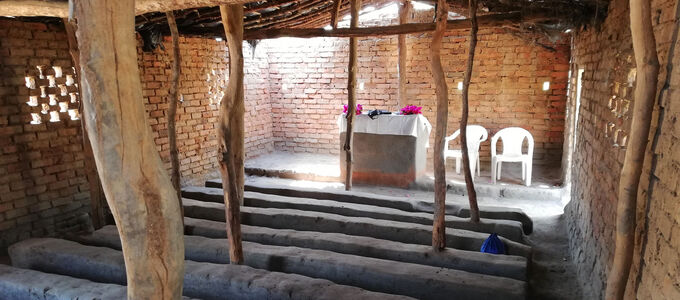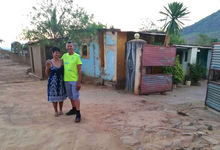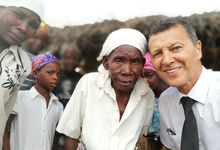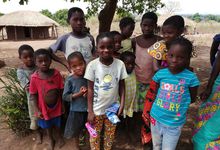Where faith is a miracle
South Africa and Mozambique share a border and yet the two countries could not be more different in many respects. But there are similarities. Here are some impressions from Mozambique, which the Chief Apostle will be visiting this week.
The retired Bishop Alvin Witten and his wife, Jean, spent months travelling through Mozambique for the Church. It was hot, sometimes dangerous, and often there were just no roads. “It can take you up to five or six hours to cover a hundred kilometres,” says Alvin Witten. But their efforts were always rewarded when they found the congregation they were looking for. In every congregation there is singing and dancing to welcome you, he says. “They have nothing to give. They are barefooted. Their clothing is tattered. But they dance and sing and welcome you.”
In 2017, District Apostle John Kriel sent the two South Africans to Mozambique to map the New Apostolic congregations there, to record the exact GPS coordinates, and assess the structural and ministerial situation. This was to help the District Apostle know where the congregations were located and how they were doing so that he could support them better.
Only a border away, but worlds apart
Mozambique may share its south-western border with South Africa, but many things are completely different there. “I always say, we are only a border away, but we are worlds apart,” Bishop Witten says. It starts with the road infrastructure, which is practically non-existent. Or those that do exist are so bad that travelling by car is almost impossible. “In the village, that’s where you live. That’s where you stay. That’s where you die,” he says, describing the situation. The people live off what they grow. “Basic things like salt and pepper that we have are not found in the villages.” There are also no shops, no electricity, and no running water. You will find women walking two kilometres with buckets to collect water, carrying a baby on their backs.
After Mozambique gained independence from Portugal in 1975, a civil war raged in the country for sixteen years. Although large oil fields have been discovered in Mozambique and there is no hunger thanks to the climate and soil, Mozambique is one of the poorest countries in the world. Corruption and illiteracy are the problems.
It is really a miracle
Despite all the differences between South Africa and Mozambique, the “church as such, the doctrine, and the liturgy are the same”, Bishop Witten says. Knowledge about the international Church is patchy. “The people are aware of who they are, that they are New Apostolic. They are aware that there is a Chief Apostle. They may not necessarily know who he is because the information hardly gets through to them, but they are aware of the structures.”
It takes months to get the Divine Service Guide to the congregations. There is no such thing as postal services so that everything has to be done by foot from one congregation to another. The ministers in Mozambique always receive the basis for the sermons in the form of a yearbook and always use the Bible text two years later than the other New Apostolic congregations worldwide.
The people in a village usually only know the one minister in their village. It is rare for a district rector to visit and even rarer for one of the eleven Apostles active there to visit one of the more than 1,300 congregations in Mozambique. Illiteracy is high so it can happen that this one minister can neither read nor write.
How then is the word of God and the teaching of the Church to be brought across to the brothers and sisters, one wonders. Bishop Witten is certain that it is imparted through the grace of God. Despite the high level of illiteracy in the villages, the congregations function. He has seen time and again that the faith in all these remote congregations is the same. “That to me is really a miracle.” And the fact that the faith has spread at all is also a miracle for him. “You come into these remote areas and you wonder how the Church managed to spread to this area.”
Under a tree
Bishop Alvin Witten is used to large, beautiful church buildings with pipe organs and so on from South Africa. This is very different in the vast majority of Mozambique’s congregations. “In the villages, huts serve as church buildings,” he says. And their churches are made from straw and wood. Some congregations gather under trees, and the people sit on logs or on bricks. “Even though there is no building and fixed address, we record them as a congregation ‘under a tree’. Often it is simply a few logs that are placed around and that then is the church.”
Excited to see the Chief Apostle
The people in the rural areas of Mozambique are subsistence farmers. They don’t have a job to go to. “This makes it easy for them to leave and go to attend a divine service,” Alvin Witten says. Many congregations are invited to the divine service. “The people do not have to ask a boss for permission to go. The difficulty for them is getting there.”
But many brothers and sisters will only be too happy to take on these difficulties to see the Chief Apostle. “So, there is a lot of excitement among the members when there is a big or a combined service,” Bishop Witten says. “It is an opportunity to get out of the village and meet other New Apostolic Christians.”
Bishop Witten can already picture how the Chief Apostle will be welcomed on December 8th. “I think a lot of these members will be really overwhelmed just to be there. Their joy and excitement will likely burst out in song and dance. And they will dress in their colourful clothes.”
Article info
Author:
Date:
Keywords:
Katrin Löwen
05.12.2023
Mozambique,
Chief Apostle,
Divine service,
Congregational life


